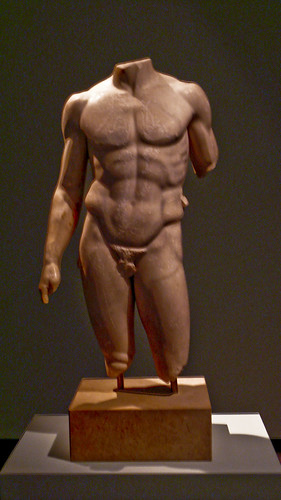
Image : http://www.flickr.com
In ancient times people had to depend on what they could produce to stay healthy and cure their sick and wounded bodies.
How this was done is well recorded in authentic facts, testimonies and legendary narrations. In the history of Aloe Vera, records have been found that the Kings of Akkad knew how to apply Aloe Vera for therapeutic use.
In the famous Ebers Papyrus from the 15th century A.D. record the 3000 year old knowledge they had in the healing formulas of Aloe Vera.
In roman culture, in the history of Aloe Vera, it was considered sacred and was offered to their gods. The Phoenicians dried the pulp extracted from the leaves and placed it in bags made of goat skins and then exported them throughout the Greco-roman world. The Romans discovered the astonishing virtues of the Aloe Vera plant in treating their wounds.
In the ancient Egypt, Aloe Vera had the reputation as a beauty product for women. The pharaohs considered it an elixir of long life. The ancient Egyptian inventors of the syringe used it as an enema. There are many ancient references to the baths made of the pulp of Aloe Vera.
The Greeks and Romans praised the Aloe Vera as symbol of beauty, patience, fortune and good health. The Greek physician, Hippocrates, the father of modern medicine, describes in his treatise some of the curative properties of Aloe Vera. This included
* Growth of hair,
* Healing of tumors,
* Relief of dysentery
* Stomach aches.
It is said that 330 B.C. Alexander the Great during the siege of Gaza recurred an arrow wound which became badly infected. The famous Aristoteles sent his student to him in while he was at the oasis of Amon. He treated the bad wound with an oil based Aloe, which healed the wound. Aristoteles convinced Alexander the Great to ensure to have a great supply of Aloe Vera at hand, as the juice of this plant would render good health and healing to his soldiers.
Dioscoride, the Greek doctor who had served many years in the roman army, described with great enthusiasm in his "de materia medica" the properties of Aloe Vera. He mentioned its virtues of
* Coagulating the blood of the wounds,
* To heal open wounds,
* To heal boils and hemorrhoids.
He also claimed that the fresh pulp of Aloe Vera stopped the falling of hair and cures eye inflammations.
Pline the Old 23 - 79 A.D. described in his book "Natural History" an original way to cure dysentery by injecting Aloe Vera juice into the rectum.
The history of Aloe Vera shows its true virtues in many different cultures. Through the many centuries the virtues of Aloe Vera have been recorded in a diversity of cultures. This is enough evidence that Aloe Vera is what it is claimed to be and that it actually works.
In our modern day as research continues we are sorting out the scientifically proven evidence from the cultural superstitious claims.
0 comments:
Post a Comment